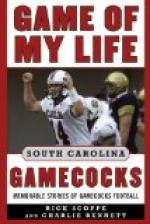Wm. M. Hill, Mayor.
* * * * *
Mr. Stroyer’s book is a setting forth in a fresh and unique manner of the old and bitter wrongs of American slavery. It is an inside view of a phase of our national life which has happily passed away forever. Although it concerns itself largely with incidents and details, it is not without the historical value which attaches to reliable personal reminiscences. The author has made commendable progress in intellectual culture, and is worthy of generous assistance in his effort to fit himself still more perfectly for labor among his needy brethren in the South.
E.S. Atwood.
* * * * *
PREFACE.
Fourth Edition.
When the author first presented his book to the public he did not anticipate the very great favor with which it would be received. The first edition was soon disposed of, a second and a third were called for, and those were as generously received as had been their predecessors. The present edition, the fourth, besides all that was in those former publications, contains some new material relating to the author’s personal experiences in the Civil War.
Thanking the people for the support given, and hoping that this latest effort will meet approval, the author presents the story of himself and his once oppressed brethren.
CHAPTER I.
My father was born in Sierra Leone, Africa. Of his parents and his brothers and sisters I know nothing. I only remember that it was said that his father’s name was Moncoso, and his mother’s Mongomo, which names are known only among the native Africans. He was brought from Africa when but a boy, and sold to old Colonel Dick Singleton, who owned a great many plantations in South Carolina, and when the old colonel divided his property among his children, father fell to the second son, Col. M.R. Singleton.
Mother never was sold, but her parents were; they were owned by one Mr. Crough, who sold them and the rest of the slaves, with the plantation, to Col. Dick Singleton, upon whose place mother was born. I was born on this extensive plantation, twenty-eight miles southeast of Columbia, South Carolina, in the year 1849. I belonged to Col. M.R. Singleton, and was held in slavery up to the time of the emancipation proclamation issued by President Lincoln.
THE CHILDREN.
My father had fifteen children: four boys and three girls by his first wife and eight by his second. Their names were as follows: of the boys—Toney, Aszerine, Duke and Dezine; of the girls—Violet, Priscilla, and Lydia. Those of his second wife were as follows: Footy, Embrus, Caleb, Mitchell, Cuffey and Jacob, and of the girls, Catherine and Retta.




